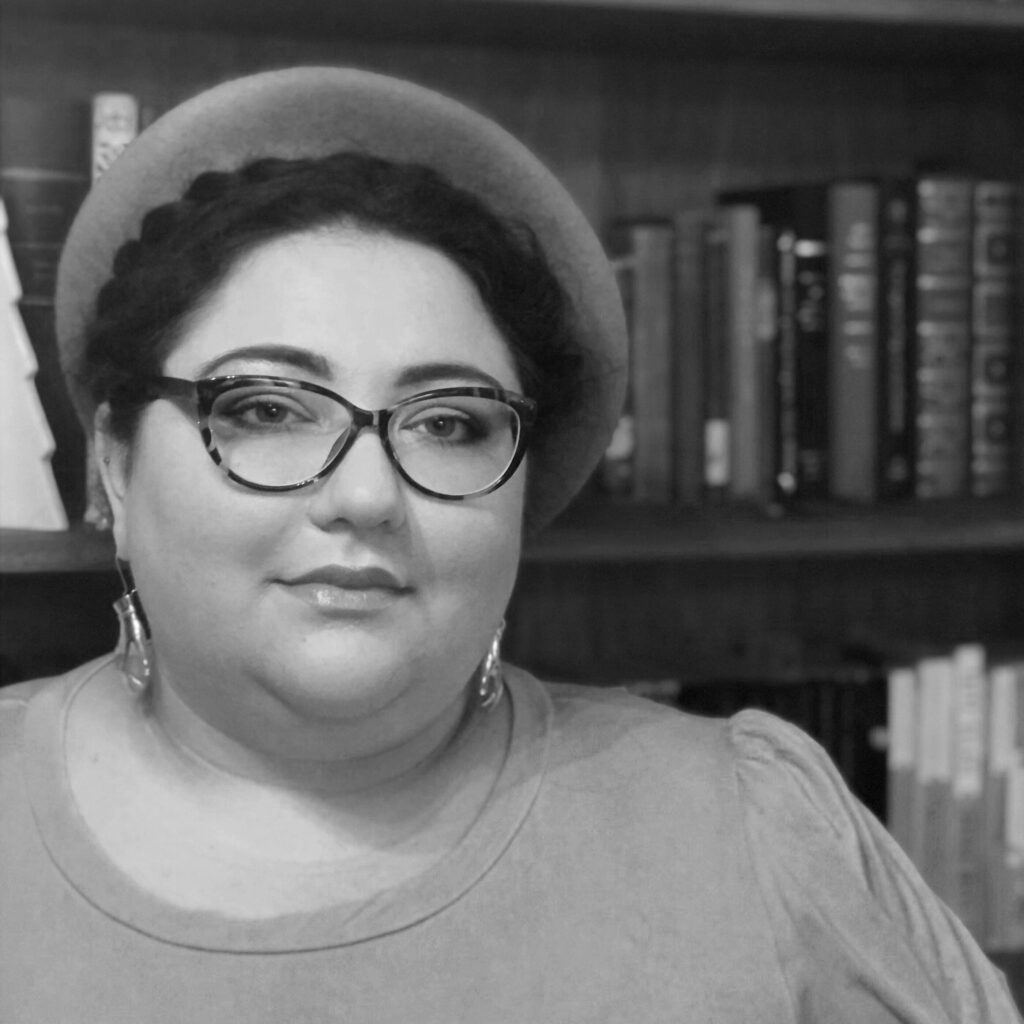Holly Eva Allen’s short story, “Forty-seven Forty-nine” was published in Issue I.
What’s been inspiring you recently? Any images or themes you’ve felt particularly drawn to as of late?
I get a lot of inspiration from art created by others. Recently, I’ve been enjoying reading novels by Leopold von Sacher-Masoch and James Joyce. I also find myself rereading poetry by Sally Wen Mao and Margaret Atwood a lot. While reading inspires me to work on pieces of my own, it mostly propels me forward without providing any clear themes, ideas, or images. Typically I turn to my own memories and experiences for that and, on occasion, the stories or memories of people in my family.
They say the best writers are the best readers. What writers or literary works inform your writing, specifically the themes explored in “Forty-seven Forty-nine”?
I would say “Forty-seven Forty-nine” mostly touches on themes associated with sexism, domestic abuse, expressions of femininity, capitalism, and the body. There are plenty of writers I love that work with those topics but a few that I particularly felt may have informed my writing or pushed me in that direction include Melissa Broder and Aimee Bender. Melissa Broder’s The Pisces deals with femininity and sexuality in a very unique way that left me stunned. I haven’t stopped thinking about it since I read it over a year ago. Aimee Bender’s novel, The Particular Sadness of Lemon Cake, explores memories and emotions in a careful, thoughtful way that prompted me to slow down my writing in certain spaces and really try to reproduce emotion.
Let’s jump into the work! This piece contends with the memory of sexual assault, specifically the desire for “evidence.” How can literature and storytelling challenge cultural perceptions of “proof” in the context of assault?
Literature and other art forms provide a way to draw a reader or viewer in and put them in the position of the victim. An individual may have a difficult time valuing the story of a victim, especially one they do not know. Stories force the reader to become the victim, in a sense. If the writing is compelling then the reader will grow attached to the character in question and learn to value the experience. My hope is that learning to value the weight of experience and how it lingers will create compassion for victims, even when evidence is sparse. The proof is in the palpable change that has taken place since the traumatic event.
The title itself is so compelling; it immediately centered the piece around numbers, data, and evidence. What made “Forty-seven Forty-nine” jump out at you as THE title for the work?
I was intrigued by the idea of juxtaposing the hard, definitive character of numbers (whether they be prices listed on a receipt or statistics about assault victims) with the memories associated with those objects or the reality of the assault. I did some research on the pricing of Plan B in my area and on average it costs $47.49. I wanted this to be the title of the piece as my hope was to transform that number into something with meaning. A person who has read the story will hopefully make the connection that this number was the price of said item and then this will prompt why the character purchased said item in the first place. In short, I wanted to create a direct link between the number Forty-seven Forty-nine and the assault itself, causing an emotional reaction at a number that normally would prompt nothing.
There was an interesting link made between economics and femininity: the grandfather balancing a checkbook, the Economics teacher pushing accounting. How does capitalism complicate our conversations about femininity? In the context of this work? Beyond?
I’m fascinated by this topic on so many levels. The fact that women who present themselves in a high-femme manner and wear a certain level of makeup make more money in many professional settings than those who do not is a testament to the fact that capitalism has, in a sense, turned women into a commodity, the value of which shifts according to the preferences of men at any given time. The grandfather and the Economics professor were employed to show a correlation between men in positions of power and capitalism. The mother and beauty blogger are employed as examples of women who function well in this system or use femininity to their advantage. Women such as these are certainly one example of how simply saying “feminine expression is all a product of capitalism and the patriarchy” can be an oversimplified way to deal with a complex issue. Do these women simply abuse the system at the expense of women whose femininity is considered lacking? Do these women turn the expectations of an oppressive society into tools with which they excel and better themselves? I don’t think any single answer can appropriately address the complexity of the issue.
You had a wonderful discussion of perspective and voice within your Resonations essay, specifically in the process of settling on the 2nd person present. Did this shift in perspective impact how you revealed the assault to the reader? How they might respond?
The reveal for the assault would have essentially been the same, though the response or description following the reveal was quite different. Originally, the protagonist would have been described in such a way that the reader would’ve had to infer a great deal about how they were feeling and what they were thinking. The second POV really helped clear this up and made it a bit easier to convey feeling which was important as I didn’t want the piece to come off in a thoughtless way that might suggest that I was using assault simply for shock.
What we own can speak such volumes about how we operate as people. What was the process behind brainstorming the specific objects listed on the receipts? Did these purchases shift between drafts?
I knew what sort of topics I wanted to discuss by way of objects listed, though different objects would work for the same theme. I especially struggled when deciding which objects to list on a certain receipt that would communicate the harsh expectations surrounding women’s bodies due to diet culture. Although I eventually decided on including a fast-food receipt, I considered employing a receipt for a waist trainer, a receipt for a subscription to a calorie counting club, and more. With every receipt, I ultimately decided to use whichever items or location would produce the most interesting event or relatable memory.
Anything else you would like to add? Anything we missed?
I just want to say thanks to Farside Review and thank you to any and all readers.

Christian Butterfield is an 18-year-old poet/essayist/totebag-enthusiast from Bowling Green, Kentucky. In 2019, he served as the National Student Poet of the Southeast, and his work has since been published/recognized by Best Teen Writing, the YoungArts Foundation and The Adroit Journal. He reads for EX/POST Magazine and was a 2020 Adroit Mentee in Creative Nonfiction.
